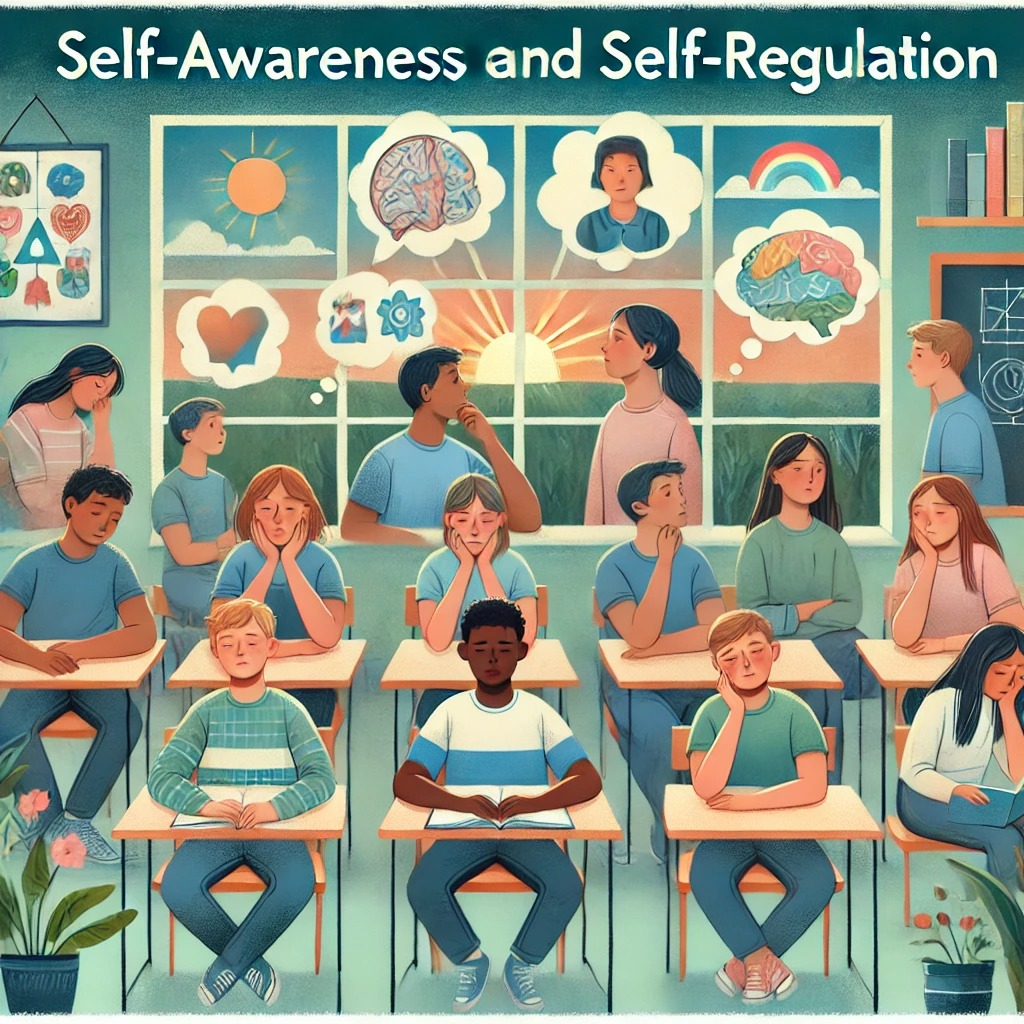
In today’s fast-paced and ever-evolving world, students face numerous challenges that demand more than just academic knowledge. While intelligence and study habits play an essential role in academic success, emotional intelligence is equally critical for personal growth and overall well-being. Among the key aspects of emotional intelligence are self-awareness and self-regulation—skills that help students manage their emotions, reactions, and behaviours in both academic and social settings.
Understanding Self-awareness and Self-regulation
Self-awareness is the ability to recognise and understand one’s own emotions, thoughts, and behaviours. It’s about knowing what drives you, what triggers your emotional responses, and how your actions impact others. When students are self-aware, they are more likely to make thoughtful decisions, build healthy relationships, and manage stress effectively.
On the other hand, self-regulation refers to the ability to control one’s impulses, emotions, and behaviours. It allows students to stay focused on their goals, avoid distractions, and respond to situations in a calm and controlled manner. Self-regulation is essential for staying disciplined, managing time effectively, and overcoming challenges without reacting impulsively.
Why These Skills Are Crucial for Students
- Enhancing Academic Performance
Self-awareness helps students understand their learning styles, strengths, and areas of improvement. By reflecting on their academic journey, students can identify what works best for them—whether it’s study schedules, time management techniques, or areas where they need extra help. Self-regulation allows them to stay focused during long study sessions, avoid procrastination, and control the urge to check social media during revision. - Improving Emotional Intelligence
Emotional intelligence is a vital skill for students to develop, as it influences their ability to navigate social interactions, work in teams, and manage conflicts. Self-awareness helps students recognise their emotions, while self-regulation helps them control their reactions, enabling them to handle difficult situations with maturity and composure. - Building Confidence and Resilience
When students are aware of their emotions and behaviours, they are more confident in their abilities and decisions. This self-assurance translates into a positive mindset, helping them persevere in the face of failure and setbacks. Self-regulation fosters resilience, allowing students to bounce back from challenges and maintain a positive attitude despite obstacles. - Strengthening Relationships
Students who practice self-awareness and self-regulation are better at managing their emotions in social situations. They can communicate effectively, handle disagreements without getting overly emotional, and build trust with peers and teachers. These skills contribute to creating a harmonious school environment, where students work collaboratively and support one another.
A Practical Approach to Developing Self-awareness and Self-regulation
As students begin to understand the importance of self-awareness and self-regulation, it’s essential to provide them with the tools to develop these skills:
- Mindfulness practices: Encourage students to take a moment each day to reflect on their emotions and actions. This could be through journaling, meditation, or simply sitting in silence.
- Time management: Help students create structured schedules that allow them to prioritise tasks, set achievable goals, and avoid procrastination.
- Conflict resolution: Teach students how to address conflicts calmly, ensuring they listen actively and express their feelings without aggression.
The Role of Parents and Educators
Parents and educators play a crucial role in helping students develop these life-changing skills. By encouraging open communication, providing emotional support, and modelling self-regulation, adults can inspire students to become more self-aware and self-disciplined individuals.
Conclusion
Self-awareness and self-regulation are not just buzzwords; they are essential life skills that can shape a student’s academic journey and overall life. By equipping students with these tools, we empower them to navigate the complexities of life with confidence, resilience, and emotional intelligence. Whether you’re a parent or an educator, fostering these skills in students will help them unlock their true potential and succeed in all areas of life.
If you’d like to learn more about how self-awareness and self-regulation can transform the lives of students, get in touch with Sajjan George, Life Transformation Coach, and start your journey today.
